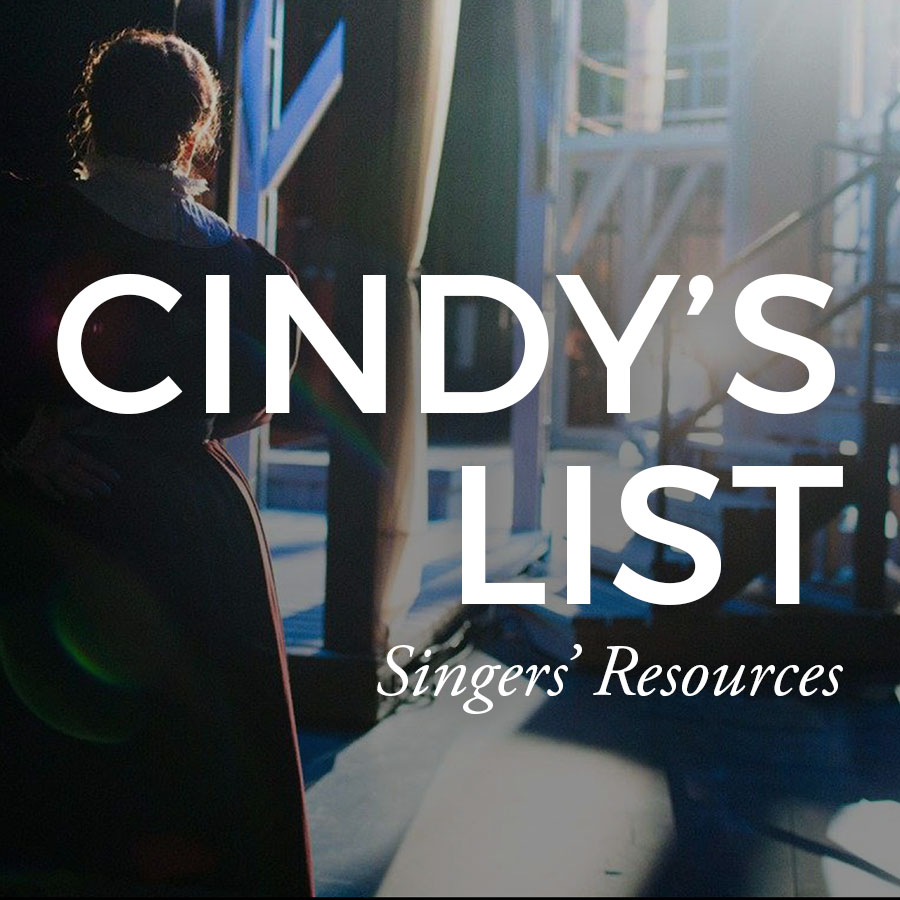First published in Classical Singer.
Dear Erda,
Is there a ranking for undergraduate voice programs? We have learned that while some very fine programs are good for graduates, they may not be as good for undergrads.
Concerned Parents
Dear Concerned Parents,
I know of no ranking of undergraduate voice programs. US News and World Report has a ranking of graduate music schools (not voice programs specifically), last surveyed in 1997. At that time, Eastman School of Music, Indiana University at Bloomington, Julliard, University of Michigan at Ann Arbor, and Curtis Institute were the top-ranking schools for grad students.
Rankings may not really be what you’re looking for, anyway. For them to be meaningful, you need to know what parameters were used and whether the areas surveyed were important to you. You need to know who, what, and why questions were asked. Just because an institution is rated highly doesn’t mean it’s a good match for your kid’s personality and talents. Let’s face it: what you really want to know is which are the best schools for your kid.
Unfortunately, there are no quick and easy answers. But cheer up: research is a vital part of both the artistic and business sides of singing. Now’s a great time to start honing those skills. As in any potentially daunting undertaking, it helps to have a plan of action before you begin. Think of this as the starting point; as you learn more, your preferences and areas of focus may change.
1. Establish a budget and research which schools meet your requirements. That doesn’t mean that you shouldn’t consider an institution that costs more, but it will help you narrow the field. If you can’t afford the school you want, you must strategize about how to cover tuition. You may be able to get scholarships, or take out student loans. If you’re planning on loans, consider seriously how paying off $50,000 of debt while struggling to establish yourself in a notoriously low-paid, expensive profession might impact your future. The US News & World Report (www.usnews.com) and The Princeton Review (www.princetonreview.com) websites offer budgeting tools, lists of scholarships, tuition calculators, and financial aid information.
2. Decide what type of environment is best for you. Big fish, small pond or fierce and plentiful competition? Obsessive focus on professional development exclusively or good general education? Big cities or small? Cold or hot? Close to home or far away? You can request catalogues and informational materials from school admissions offices.
3. Establish your educational priorities. The most important thing for a performer is to know how to sing. If you intend to perform, identify the teachers you’d like to study with first and then determine whether the school is also a good match. Some basic tips: find out who teaches the singers you admire. Do a Google search on faculty members at schools you like; find out about their professional performing and teaching histories. Talk to colleagues. Schedule trial lessons with teachers; sit in on studio classes and student recitals if at all possible. For other excellent tips, visit www.voiceteacher.com, or Young Artists’ Corner/Getting Started at www.lauraclaycomb.com.
4. Identify institutions that meet your criteria. The US News & World Report site lists schools according to defined sets of criteria. The National Association of Schools of Music (http://www.arts-accredit.org/nasm/gfaq.html) offers a directory of accredited schools. The Musical America directory also lists music schools and departments.
5. Make appointments. Once you’ve narrowed your list down to the top three to five schools you’re interested in, arrange to visit the campuses. Try to make appointments to sit in on studio classes, hear recitals, and have trial voice lessons. Talk to the students. See a production if you can. This is expensive, but also vital to the process.
6. Apply. When you know where you want to attend and you’ve asked the teacher you’ve set your heart on if she’ll hold a place in her studio for you, you can start filling out the forms.
7. Prepare for your audition. Auditioning for schools is a major undertaking and should not be treated lightly. Make sure you understand the school’s requirements, and then make your repertoire selections with the help of your voice teacher. Plan to prepare over a period of several months, if not a year, and do so with the guidance of your teacher.
Your education is an expensive, time-consuming investment in your future. If you begin study only to discover after giving it a fair try that the teacher or the school are not right for you, don’t waste a lot of time and energy waiting for things to get better. Change studios or change schools. You have the right to get the education that is best for you. But you have to be willing to put in the time, effort, and emotional fortitude to achieve it.





